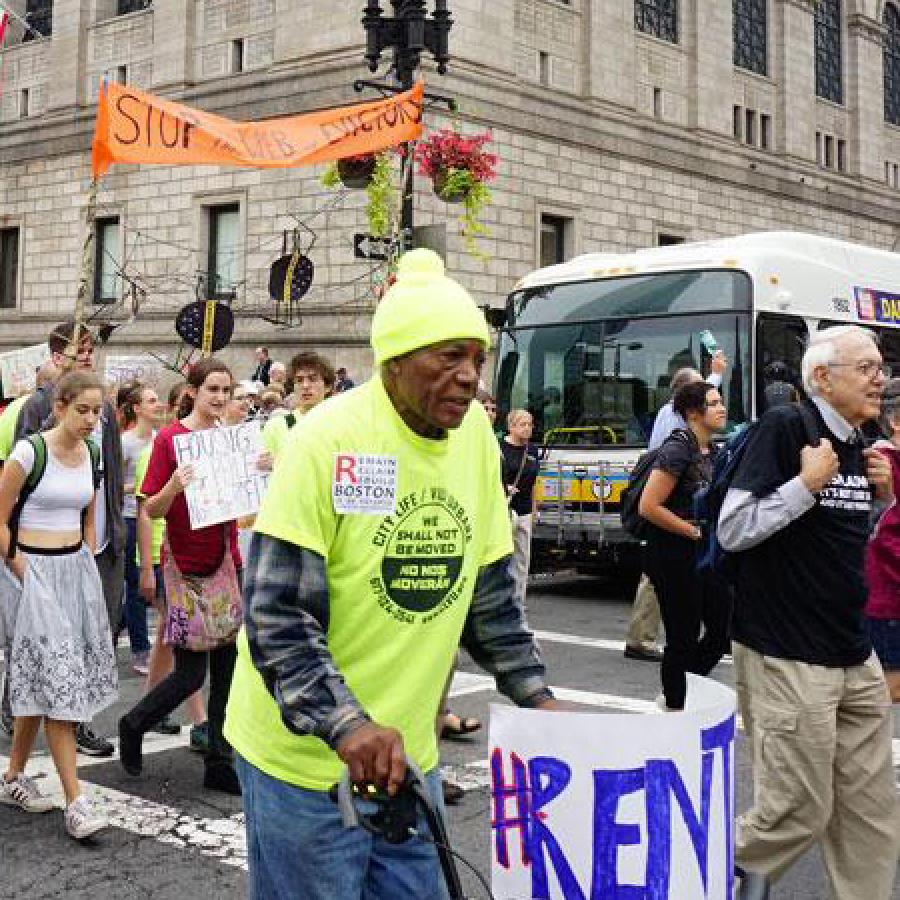Stewart Kwoh on Expanding Equity in Public Universities
America’s Tomorrow presents Equity Speaks, an interview series with leaders from activism, academia, and policy aiming to inspire advocates for all-in cities and an equitable, thriving U.S. economy.
Public colleges and universities across the country have been struggling for years to open up access for low-income youth and youth of color, even as ever-higher levels of education and skills are needed in the job market. The challenges have grown as states have cut funding for higher education. Now, the Supreme Court is considering a challenge to race-conscious admissions at the University of Texas, a ruling that could further restrict educational opportunities across the nation.
California, the first state to ban affirmative action in 1996 (specifically in public education, employment, and contracting), offers a glimpse of what such restrictions might mean for America’s future. Latino, Black, and Native American students made up 54 percent of the state’s high school graduates in 2012, but only 27 percent of freshman in the University of California system. Although Asian Americans as a whole attend college and graduate at high rates, these statistics mask the enrollment disparities facing distinct groups such as Vietnamese, Native Hawaiian, Cambodian, and Hmong. Meanwhile, by 2030, 38 percent of jobs in California will require a bachelor’s degree or higher, and there will be 1.1 million fewer college graduates statewide than the economy demands.
Working to close these gaps, a multiracial, multigenerational coalition in California led by Asian Americans Advancing Justice-Los Angeles is demanding greater investment in state universities, increased access to admissions and financial aid, and a bigger, better, more equitable K-12 pipeline that helps all youth achieve their full potential. Stewart Kwoh, the organization’s founding president and executive director, building upon the legacy of the Asian Pacific American Legal Center, spoke with America’s Tomorrow.
You’ve reframed the conversation about college admissions. For years, people have been trying to figure out how to fairly apportion slots. You’re saying, let’s create more openings for everyone. Why this approach?
We do support affirmative action but in California, we haven't had it for 20 years, and most likely, it won’t change in the near future. We could wait for the timing to be right but we'll lose another generation of students so let's fight for policies that help every group in need. If the game is just to apportion the seats that exist, then most likely we'll all lose. There will just be an increasing number of young people who want the seats, and there will be fewer seats for everyone so then we're just fighting over the shrinking pie. Shouldn't we be fighting for expanding the pie for everyone, especially the underserved students?
How are you doing that?
Equity requires investment. When there's disinvestment, there’s probably less equity, and that’s absolutely true in the context of higher education in California. Over the past couple or so decades the state has built 22 prisons and only one University of California campus. The money flow has gone down, so there are fewer students in some of the universities, they're paying much higher tuition, and schools are bringing in foreign students and out-of-state students who pay triple the in-state tuition. It edges out California youth. Our view is that there has to be a whole new investment in higher education and new investment in the pre-K-12 pipeline to create equitable opportunity so young people are prepared to go to college and to graduate. We have to be working at both levels.
If you succeed in increasing investment in public universities, how do you ensure that access is equitable?
We're trying to expand the number of Cal State and UC enrollment openings for students from California. We're also trying to ensure that among those who get these open seats, we have a good share of racially and ethnically diverse students from low-income schools. A 2012 ballot initiative, Proposition 30, provided a big infusion of money into California schools, including greater funding to serve high-need students who are low income, English learners, or foster care youth. We're advocating using that same formula to bring in high-need students who are disproportionately students of color, as well as underserved White students, into the UC and Cal State systems. We’re also pushing for regional college preparation programs, better retention programs, and financial aid. It's a universal approach to increase higher educational opportunities for all, which we are calling our “Education for All Campaign.” It’s a specific approach to make sure that more racially and ethnically diverse students get into UC and Cal State as we open up more seats. And it's a practical approach because we want students to actually finish college.
How are you making the case for more investment?
We’re not just saying, “Oh, let’s be fair.” Over a million jobs in the California workforce will not be filled by California youth because they don't have a college education. Think about that — over a million California youth won't get a college education in the next 15 years who should have or could have. If we don’t build a strong movement of higher education for all and if we don’t make big policy changes, it will have dire consequences that will hurt us all.
The common wisdom says that Asian American students have benefitted from the ban on affirmative action — their representation on University of California campuses has increased markedly in the past 20 years. How do you address the idea of the model minority?
First of all, we stand in solidarity with underserved students of color who aren't able to get into the colleges or can't go from the community colleges to the four-year colleges. We absolutely think that we all benefit by having a greater pipeline and completion rate for students of color. The second point is that this model minority monolith, or stereotype, really hurts our community because it covers up and makes invisible the true needs of Asian and Pacific Islander groups.
What does your research show about those needs?
We recently released a study that was led by the Campaign for College Opportunity on the state of higher education for Asian Americans, Native Hawaiians, and Pacific Islanders and basically the main conclusion is that there's tremendous diversity in needs and success. For example, Southeast Asians, Pacific Islanders, and Native Hawaiians have far lower college completion rates than certain Asian American groups — comparable to the rates for Blacks and Latinos. Yes, some groups of Asian Americans have done well and have not done well — the differences are very stark. But we also found almost every group in the Asian American community has very high financial needs. Even the more successful groups have challenges — they have college access but they're graduating with a whole lot of debt. It’s not a good picture in terms of true access for anybody.
Describe your K-12 agenda and why it’s important to your advocacy on higher education.
There have to be major changes in the K-12 system so more students are prepared to go into community college or four-year college. A very significant percentage of high school students going to community college now need remedial math and English classes. That's very discouraging for students, and it’s problematic for the future of California. We need more concerted attention by all community groups to make sure all students, especially underrepresented students of color, enter school ready to learn, receive support to succeed and discover their passions, and graduate high school ready to go to college — and finish. At the end of the day we must have a much bigger pipeline of students getting college degrees with needed skills that will strengthen the state. They will be paying greater taxes; they will be more productive residents. It’s a win for everyone.
Learn more and get involved by contacting: Geralyn Yparraguirre, Education Policy Advocate at Asian Americans Advancing Justice – Los Angeles (gyparraguirre@advancingjustice-la.org) or 213-977-7500 x267.


